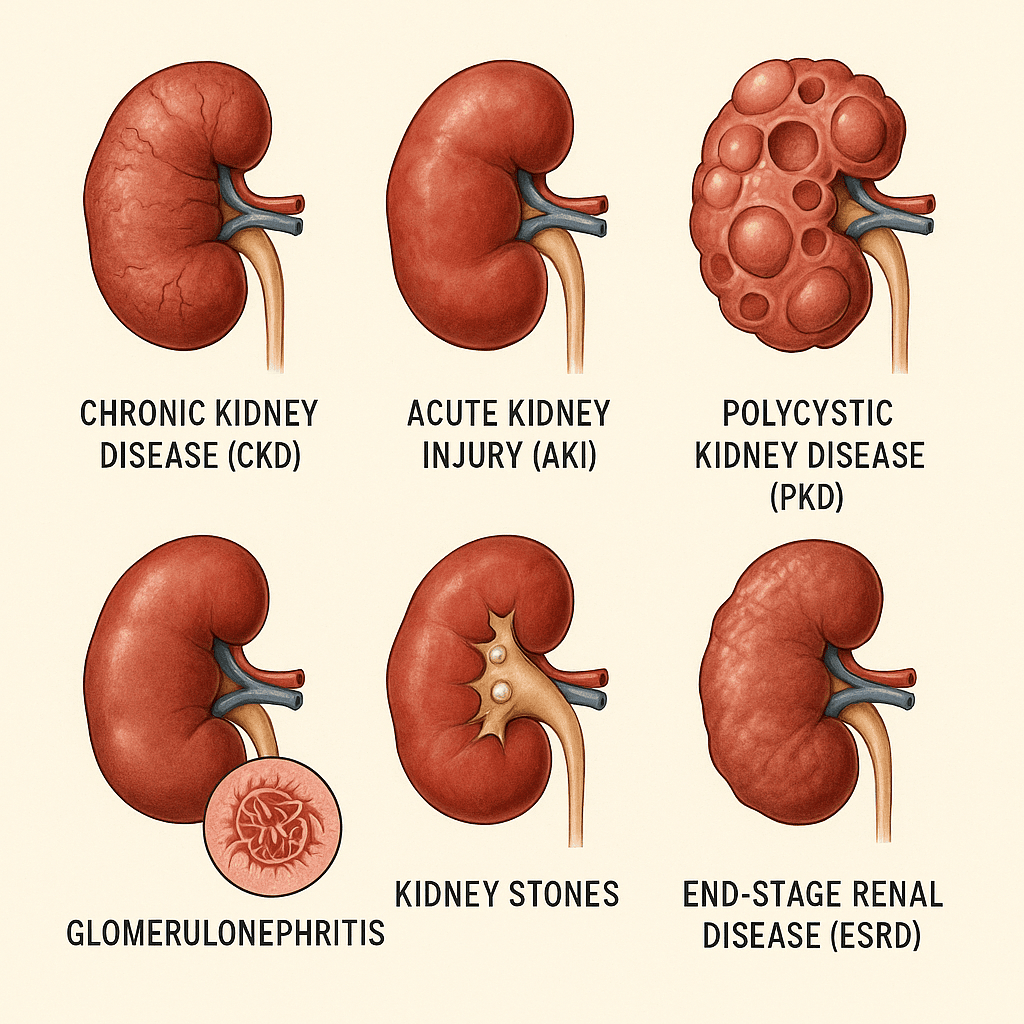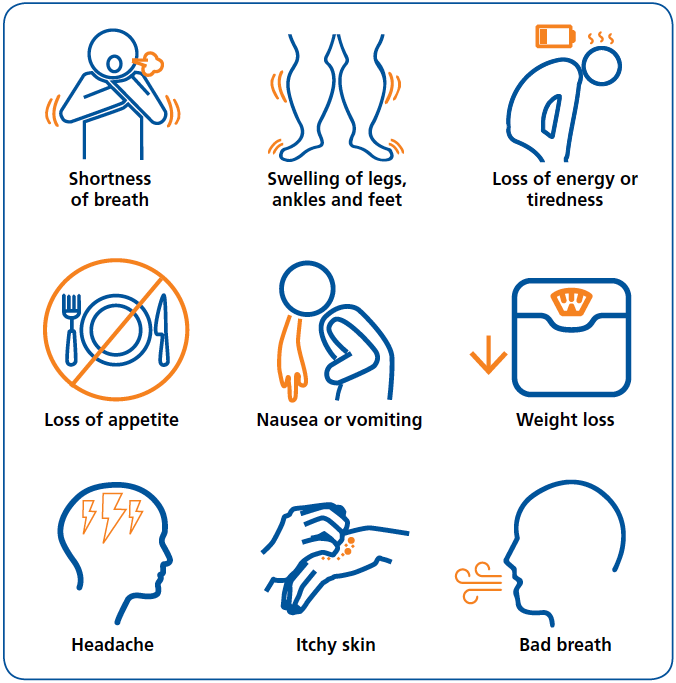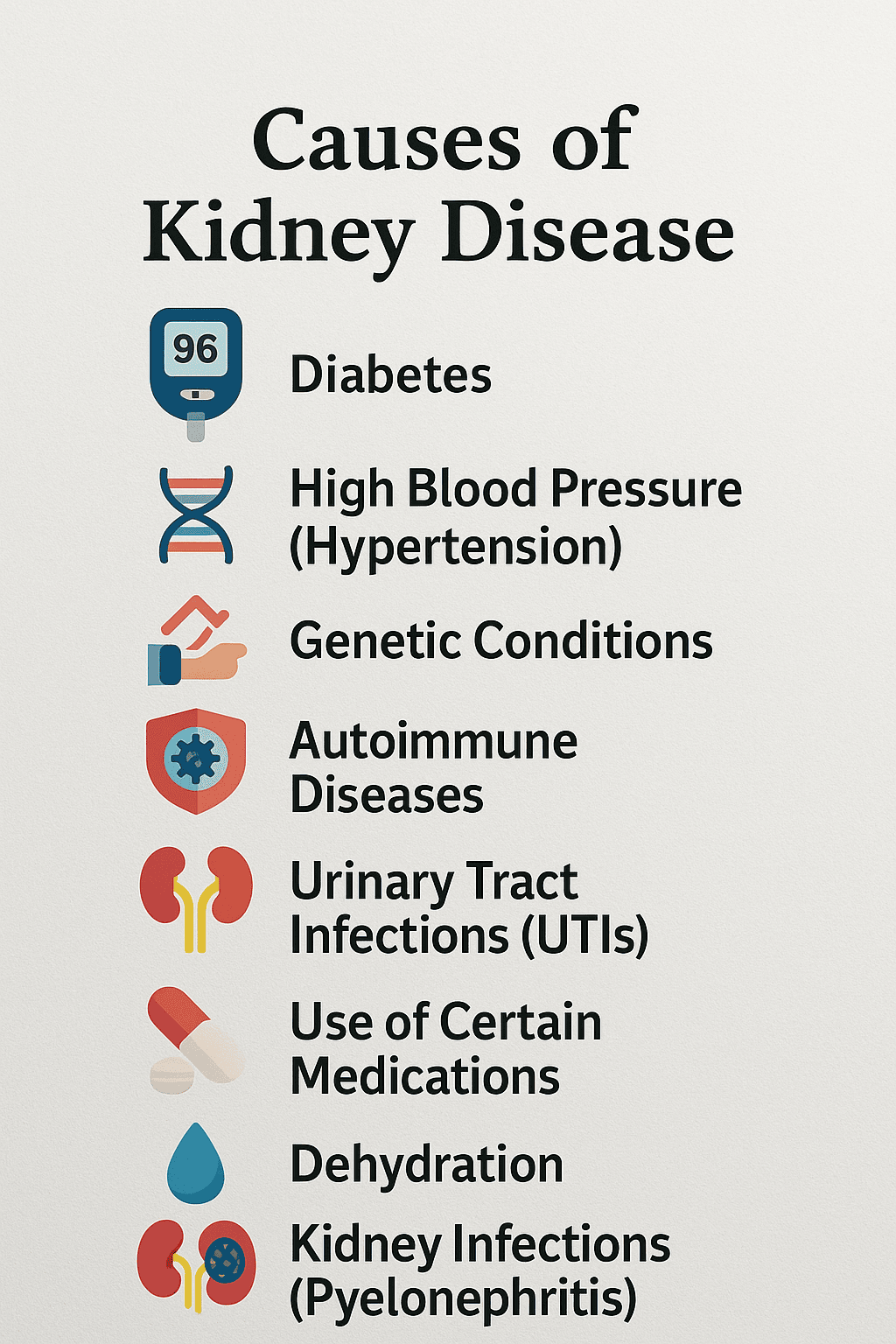What is Kidney Disease?
Kidney disease, also known as renal disease, refers to any condition that affects the function and structure of the kidneys. The kidneys are essential organs responsible for filtering waste, balancing fluids, and regulating blood pressure. When they become damaged, they lose their ability to function properly, leading to waste buildup in the body, which can cause serious health complications.
Types of Kidney Disease
Kidney disease can be classified into various types, including:
- Chronic Kidney Disease (CKD): A long-term condition where kidney function gradually declines over time.
- Acute Kidney Injury (AKI): A sudden loss of kidney function, often caused by infections, dehydration, or severe illness.
- Polycystic Kidney Disease (PKD): A genetic disorder causing fluid-filled cysts in the kidneys, leading to enlargement and dysfunction.
- Glomerulonephritis: An inflammation of the kidney's filtering units (glomeruli), often caused by infections or autoimmune disorders.
- Kidney Stones: Hard mineral deposits that form in the kidneys and can cause pain and obstruction in the urinary tract.
- End-Stage Renal Disease (ESRD): The final stage of kidney failure, requiring dialysis or a kidney transplant for survival.

Signs and Symptoms of Kidney Disease
Kidney disease often progresses silently in its early stages. However, as the condition worsens, symptoms may include:
- Fatigue and weakness
- Swelling in the legs, ankles, or feet due to fluid retention
- Frequent urination, especially at night
- Blood in the urine (hematuria)
- Foamy urine due to excess protein
- Persistent nausea and vomiting
- Difficulty concentrating or mental fog
- High blood pressure
- Loss of appetite
- Muscle cramps and itching

Causes of Kidney Disease
Several factors can contribute to kidney disease, including:
- Diabetes: High blood sugar levels damage kidney filters over time.
- High Blood Pressure (Hypertension): Increased pressure on kidney blood vessels leads to damage.
- Genetic Conditions: Disorders like polycystic kidney disease (PKD) can be inherited.
- Autoimmune Diseases: Conditions like lupus can attack kidney tissues.
- Urinary Tract Infections (UTIs): Repeated infections can cause scarring and kidney damage.
- Use of Certain Medications: Long-term use of painkillers and certain antibiotics can harm the kidneys.
- Dehydration: Severe dehydration reduces blood flow to the kidneys, leading to damage.
- Kidney Infections (Pyelonephritis): Bacterial infections in the kidneys can lead to chronic issues.


When to See a Doctor
It's important to seek medical attention if you experience:
- Persistent fatigue and weakness
- Swelling in the legs, face, or abdomen
- Changes in urine color, frequency, or appearance
- High blood pressure that is difficult to control
- Severe pain in the back or sides
- Unexplained nausea, vomiting, or loss of appetite
- Difficulty breathing due to fluid retention
Early diagnosis and treatment can help slow down kidney disease progression and improve overall health. If you have risk factors such as diabetes or high blood pressure, regular checkups with a doctor are essential to monitor kidney function. For more information, consult a healthcare professional or visit a nephrologist for a thorough evaluation.

About Dr. Sudhir
Dr. Sudhir is a Gold Medallist and MD in Ayurveda from the prestigious Gujarat Ayurveda University. With over 20 years of clinical experience in treating kidney diseases, he is widely regarded as an esteemed Ayurvedic Kidney Specialist, having successfully treated 100,000+ patients to date.
With more than two decades of global experience, Dr. Sudhir has built a strong international patient base across USA, Canada, Japan, Brazil, England, France, and Italy. He currently serves as an Ayurveda Physician and Visiting Professor at Japan Yoga Niketan and conducts three-level Ayurveda certification courses across Japan.
A trained Panchakarma expert, Dr. Sudhir specializes in Kidney and Neurological disorders. He has participated in 70+ national and international conferences and has received multiple accolades, including the Best Ayurvedic Service Award and a Gold Medal from the Academy of Ayurveda.
Dr. Sudhir and his team provide personalised treatment plans using natural herbs and classical Ayurvedic techniques to improve kidney function and prevent further damage. The approach focuses on treating the root cause of kidney disease, not just the symptoms.
With a strong patient-centred philosophy, Dr. Sudhir and his team have helped millions of patients regain their health and quality of life. The centre’s success stories reflect the effectiveness of their treatments and dedication.
